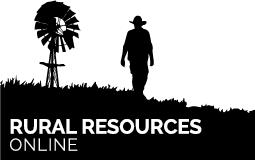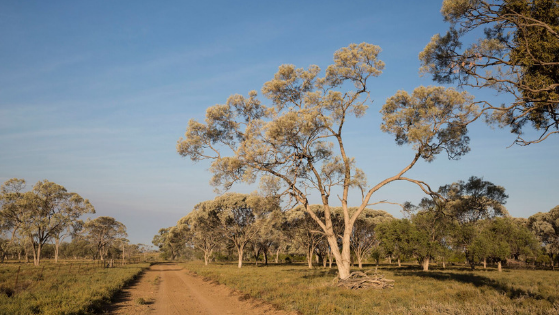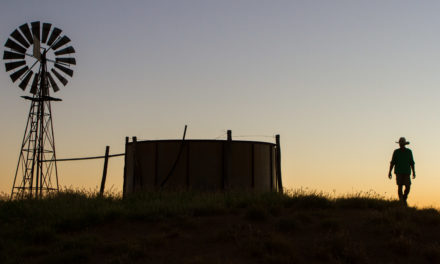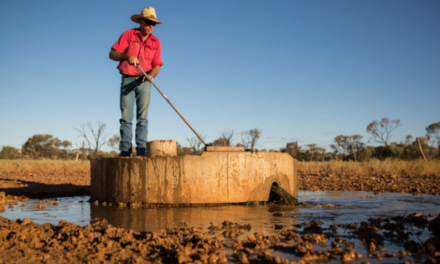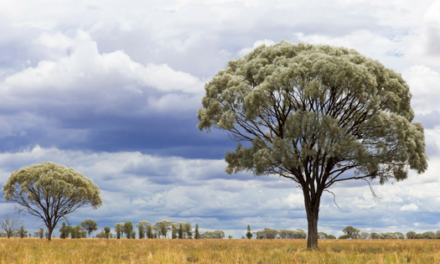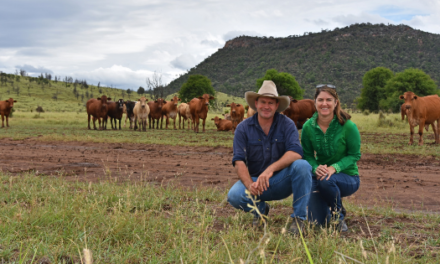Attending the National Farmers Federation Diversity Congress and the Australian Farm Institute 2018 Roundtable provided an interesting opportunity to observe Australia’s agricultural policy makers and thought leaders in action.
From little things big things grow
My trip was made possible due to a scholarship from the NFF to participate in the Diversity in Agriculture Leadership mentoring program. What I learnt from my experience is that it is not capacity, but rather confidence, communication channels, connections and logistics that currently prevent many people (not just women) from considering leadership roles in our Industry.
The old saying ‘you don’t know, what you don’t know’ applies. I was not aware of the contribution made by so many to our Industry. I also now have a greater appreciation of the importance of having high profile decision makers show their support for agriculture. We make grow world class food and fibre but we operate in an international market place and need to know our representatives are on our side.
The problem with politics before people
The Prime Minister, Scott Morrison spoke of the lessons learnt from farmers managing drought for 6 years in Qld. These people demonstrate optimism, hope, belief, commitment, resilience and importantly success.
He said you don’t help the environment or communities by pulling farmers down.
The Hon, Joel Fitzgibbon identified 3 key areas that Agriculture should focus on. These were:
* Community preferences
* Climate change
* The quest for premium markets
He said it was not ok to ‘attack and demonise’ those people who question farmers treatment of the environment and animals.
That I agree with.
Unfortunately, he did not follow with saying it is not ok to attack and demonise those farmers doing their best to look after the environment and their animals.
I hope he does not take that tone when talking to a room full of primary producers.
The bigger picture
Lisa Sharp from MLA spoke about global mega trends (significant shifts in societal, economic, technological areas that impact consumer behaviour).
The main two mega trends are:
1. Fear, uncertainty and doubt
2. Great expectations and the increasing number of consumers purchasing products based not just on needs but additionally seeking products that align with ethics and values similar to their own.
Many speakers spoke about how ‘we’ in Agriculture must be proactive rather than reactive both in terms of seeking new/different markets and addressing consumer (and societal) expectations.
An insight into the bubble that is Canberra
The theme for the AFI Round table was ‘Evidence meets Emotion’.
Think Glyphosphate, Live Export and Tree Clearing and you can easily acknowledge the relevance of this discussion. Primary producers can justify their actions as they understand the impact each input or management practice has on their outputs. The challenge for producers is when production methods must be modified due to policy changes and public opinion.
The tension between evidence and emotion is global.
Marketers will tell you people buy on emotion and justify with logic. This means all the scientific data in the world will not help public opinion if there is not a positive emotional connection aligning with the facts.
I was impressed that along with animal activists, academics and policy makers farmers got the opportunity to contribute to the discussion.
Two key topics at the Roundtable and Congress was the need to acknowledge our ‘social licence’ and the importance of trust both in terms of community and consumer expectations.
These issues impact significantly on the ability of our Industry to operate and it is important we acknowledge this moving forward.
The importance of managing expectations
The MLA always impress me with their consumer insights and the dedication of the staff to sell ‘brand Australia’.
My concern however, is although responding to community expectations has been identified as being important, the focus on addressing consumer expectations and selling the end product is taking priority.
Public opinion is what influences policy decision makers. Being reactive and defensive is not a good strategy.
I am disappointed selling ‘brand Australian farmer’ has not also been a focus of industry marketers. We need our city friends to tell the politicians farmers are doing the right thing.
But how will they know if we don’t proactively show them?
This is why I get frustrated
As a primary producer, I was at times, disappointed with the narrative.
In fact, I wanted to jump up and ask ‘what about all the good things we do’?
Many grassroots producers are doing their bit.
Last year our business became number 83 to be certified as a Grazing Best Management Practice program (Grazing BMP) enterprise.
It took months of preparation, the documentation process cost our business time and money. We made the decision to become certified to both improve our business and support the beef industry in Australia.
Other sectors of agriculture have similar producer initiated programs.
Grazing BMP is an industry-led, proactive and voluntary approach to demonstrate the uptake of good farm management practices and ethical and environmental stewardship.
An external auditor assessed our operation against over 150 international standards.
But I heard no mention of this program in Canberra.
There were commendations of our personal resilience, but little mention of business skills, environmental stewardship and efficiency achievements.
It’s time to celebrate Australian Agriculture
What I also realised in Canberra is the big guys need us.
There are so many reasons to celebrate Australian farming families contribution to Agriculture and not just for the economic injection.
The key to community support involves emotional connection.
Images of the drought struck an empathetic chord with our urban friends. They responded with an outpouring of generousity.
Drought however, should not be the defining image of Australian farmers.
We need to not only share our stories, but celebrate them.
We know stories of big agricultural companies and large commercial operations will not win city hearts. Consumers trust farmers but are wary of certain farming practices.
So it’s back to the family farmers.
The problem with this is we are not marketing experts.
We need the strategies to be developed so that a framework can be developed.
The message ‘from our family to yours’ has a much greater chance of connecting the city to the bush however, we need help to deliver it.
